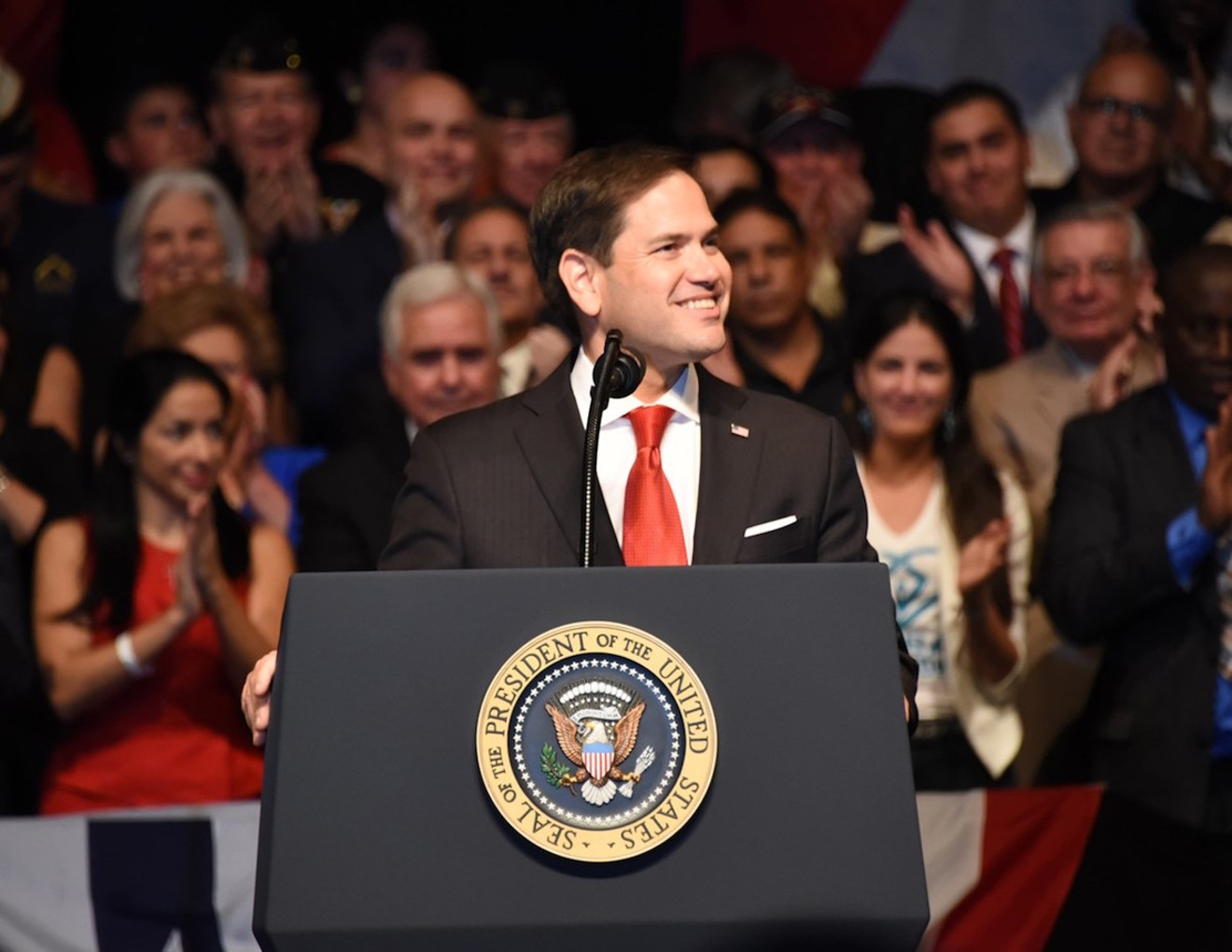Well, the Senate finally revealed its "Better Care Reconciliation Act," and — surprise! — it fixes none of those problems. The plan eliminates the Essential Health Benefits requirement, thus creating a backdoor for insurers to discriminate against people with preexisting conditions; its tax-credit systems are estimated to cause premiums for the elderly to
But the bill could easily still pass, and a study released today by the center-left Center for American Progress (CAP), a Democratic think tank, estimates that roughly 2 million people in Rubio's home state of Florida would lose their health coverage under the plan. That's good for third-worst out of every state in the nation, behind only California, where 2.5 million people would lose coverage, and Texas, which would be stuck with another 2.4 million uncovered residents. The CAP used data from the Kaiser Family Foundation, U.S. Census Bureau, and other sources to estimate coverage losses using
According to the CAP, the Senate plan would chop 1.2 million Floridians off Medicaid and another 800,000 from the individual marketplace. When it comes to the Sunshine State's Medicaid enrollees, the biggest losers would be children: An estimated 267,000 kids would lose state-sponsored coverage under the plan, as well as 74,000 Florida adults, 60,000 seniors, and 43,000 people with disabilities.
The CAP also broke down coverage losses by congressional district: According to the center's analysis, GOP Congressman Mario Diaz-Balart's district would see 98,600 constituents newly without care. Carlos Curbelo would have 104,700 newly uninsured, and Ileana Ros-Lehtinen would have 109,100 left in the cold.
As for Miami's two Democrat-represented districts, 106,800 of Frederica Wilson's constituents would lose care, as would 91,300 of Debbie Wasserman Schultz's. That's somewhere in the ballpark of 400,000 to 500,000 Miamians suddenly without health insurance.
(Unfortunately, the CAP's president, Neera Tanden, and her close confidant Hillary Clinton have repeatedly refused to back Democratic proposals for single-payer health plans to combat the GOP's bald-faced attempts to kill the poor, but that's another story.)
Since details of the Better Care Reconciliation Act (BCRA) became public, Rubio has not said whether he'll vote for or against it. But considering he has absolutely zero qualms about misleading his constituents, he has so far stuck to his usual plan: offering contradictory, mysterious, and confusing quotes to the public as he prepares to vote along party
Plus, when it came to the House's American Health Care Act, Rubio already dismissed the 23 million set to lose coverage under that plan as a "small percentage of the population." (In addition to killing people and bankrupting families, that "small percentage" was also estimated to cut 83,000 jobs and $8.6 billion from the Florida economy. The Senate plan would certainly take a similar hacksaw to the state budget.)
In his Facebook Live address, Rubio began by spitting out what sounded like some hopeful thoughts, such as the idea that Medicaid recipients shouldn't be napalmed and the basic belief that health-care plans should spend more on the elderly.
But he then jumped into a Sarlacc pit of wrongness, arguing that millennials and people under the age of 25 prefer to buy cheap plans that cover nothing because they're all so healthy (when in reality, most millennials would love plans that cover everything if they could afford them), and that young people are sometimes better off paying for low-level care such as flu visits with money stashed in "
Likewise, Rubio argued that the dire warnings about what sorts of benefits states might choose to cut are overblown
But research clearly shows that once coverage requirements are taken away, states stop spending on the poor:
Likewise, cutting Medicaid means killing people. That's not a partisan stance. That's been a known fact for decades.When faced with fewer mandates and less money, states weren't magically efficient, they were very restrictive. 20/n pic.twitter.com/uonwNcSEsG
— Andrew Goodman-Bacon (@agoodmanbacon) June 25, 2017
Here is sommers, baicker, and Epstein finding ?? mortality after Medicaid exp in 3 states: https://t.co/edSLoRf3JP 2/n pic.twitter.com/ml6QES9ZqY
— Andrew Goodman-Bacon (@agoodmanbacon) June 25, 2017
Here they are showing that coverage for pregnant moms reduces infant mort (and more for the poorest kids under "targeted changes") 8/n pic.twitter.com/sZ3zEXmIgO
— Andrew Goodman-Bacon (@agoodmanbacon) June 25, 2017
"I don't know how long it'll take to go through it," Rubio said through Facebook. "It may have a lot of these issues already covered and easy to identify. So it may take me one day to figure out where I am. It may take me a week."Here the are showing that mortality for children falls, too 9/n pic.twitter.com/tLb8oNMgkr
— Andrew Goodman-Bacon (@agoodmanbacon) June 25, 2017
Looks like you've been given some extra time, Marco. Happy choosing!












